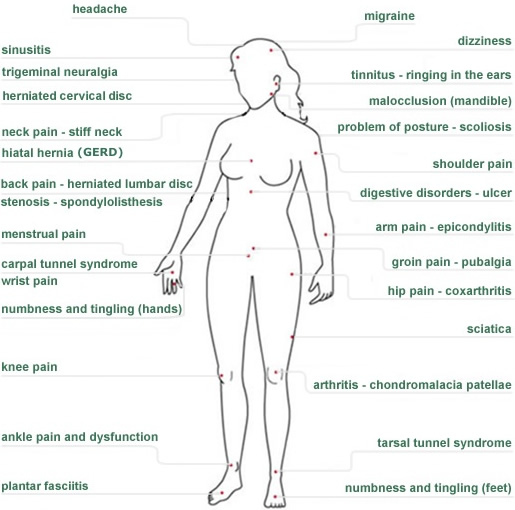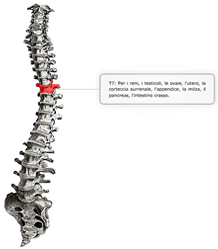Inflamation
Inflammation
Chronic inflammation is pervasive in our society. Perhaps you suspect inflammation in yourself or a loved one, but are not really clear on what it is. In this newsletter, I will describe how inflammation occurs, and the ways in which Applied Kinesiology keeps it at bay.
Chronic vs. Acute Inflammation
Our bodies always strive to heal itself. If we bang our knee, we experience pain, swelling, and redness that usually lasts for a few days. This is “acute inflammation,” and it is the body’s normal, protective response to heal damaged tissue.
“Chronic inflammation” on the other hand, is more complex and insidious. Unlike acute inflammation it is not normal. Chronic inflammation can persist for months or years and be experienced as:
- fatigue
- memory problems
- pain and recurrent pain
- visual changes
- any digestive issue
- loss of memory
- sleep issues
- tremors
- brain fog
- named and unnamed autoimmune disorders
- swollen ankles / wrists
- headache
- throat irritation
- skin problems
- mouth sores
- obesity
- feeling too hot or cold
- asthma
- mood swings
- postural deviations
- TMJ dysfunction
Chronic inflammation can eventually progress toward more serious conditions like autoimmune disease, diabetes, heart disease, cancer, and neurodegenerative diseases (Alzheimer’s, Parkinson’s, etc.)
Stress Chemistry & Inflammation
Our bodies respond to perceived threats by releasing adrenaline and cortisol. These hormones make us more alert by raising, , tensing our muscles, sharpening our concentration. When there is a real threat, this primitive reflex is helpful, however once the threat has passed, we are programmed to calm down. This is a normal response to threatening situations.
The problem in today's society is that perceived threats have become a way of life for many people. For some, it comes from financial concerns or career frustrations, while others it comes from family issues or relationship conflicts. These emotional stresses are intensified by chemical stressors such as alcohol, caffeine, blood sugar issues, and medications. Top this off with the physical stress that comes from too much or not enough exercise, and we become exhausted and sick.
Contrary to popular belief, the hormone cortisol is not harmful in and of itself. It raises our energy levels and has powerful anti-inflammatory effects. The problem is that when stress becomes ongoing, too much cortisol gets produced for too long. Then, just like the boy who cried wolf, our tissues become desensitized to cortisol, and inflammation goes unchecked. Now we're feeling pain after minimal exertion.
Gut on Fire = Brain on Fire
Chronic stress provokes continuous release of cortisol from our adrenal glands. The increased cortisol then inhibits blood flow to our intestines, resulting in increased permeability of the gut lining. This is known as "leaky gut" a condition in which undigested food, bacteria, and toxins leak from our intestines, and into our blood stream. Eventually these harmful substances cross blood brain barrier and set up inflammation in our brain. We don't feel pain in our brains or even in our gut necessarily because there are no pain fibers either the mucosal lining of our intestines, nor in our brains. Instead we get symptoms in other areas of the body (see above list).
Finally, elevated cortisol suppresses our immune system. This emables pathogens to flourish. As bacteria, parasites, fungus, or viruses gain a foothold, we easily become sick or inflammed.
How Can Applied Kinesiology Help?
Conventional medicine compartmentalizes the body into independent systems. Pick up any physiology textbook and you’ll see a separate chapter for every system in the body, but none which explain the intimate relationships between them.
Applied Kinesiology is true holistic medicine. It assesses body systems, not just individual parts. Applied Kinesiology strives to prevent illness rather than manage disease.
While blood tests may shed light on inflammation (CRP, ESR, cytokine testing, etc.), results are often negative, even when inflammation does exist. This is because blood tests are not tissue specific. For example, one type of inflammation may exist in the small intestine, while a very different type may exist in the sinuses.
In Applied Kinesiology, we muscle test vials against different points on the body that relate to organs and glands. The vials contain homeopathic versions of chemicals our bodies produces: hormones, cytokines, neurotrransmitters etc. In this way we are able to differentiate the nature of inflammation in specific organs and glands.
Likewise, we also use Applied Kinesiology to determine what is needed to remediate inflammation. My clients will often hear me say things like “we need to get T-regulatory cells up” or “we have to bring Interleukin-6 down.” Here, I am referring to specific cytokines, or micro proteins that are produced by the body in order to fight infection or reduce inflammation.

 SCHEDULE AN APPOINTMENT
SCHEDULE AN APPOINTMENT









